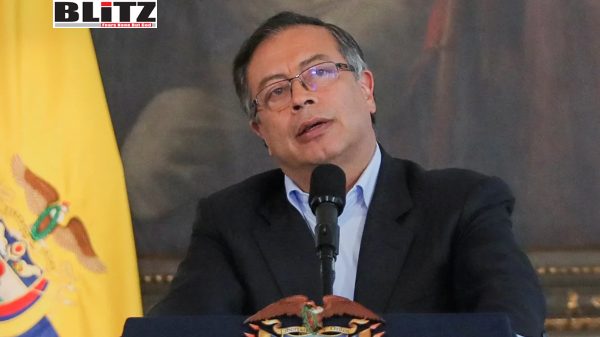Amnesty International recently suffered a blow
- Update Time : Friday, August 14, 2020

Irina Tsukerman
A recent unsubstantiated Amnesty International report attacking Morocco for its alleged use of Israeli software to surveil a journalist is part of Amnesty’s pattern of defending turncoat intelligence officers, rogue political operatives, and foreign agents against their governments. While Amnesty failed in its bid to have the Israeli government revoke NSO’s license to export this software, it continues to add to the chorus of media and human rights organizations that amplify claims made by anti-Israel, pro-Islamist activists of surveillance, character assassination, and technology manipulation. These charges may be evidence of the depth and breadth of Qatari information warfare.
UPDATE: Omar Radi has been arrested on charges of rape and receiving funding from a foreign agent.
Amnesty International recently suffered a blow, potentially as much to its reputation as to its operations, when the Tel Aviv District Court ruled to dismiss its complaint against Israeli cybersecurity company NSO Group/Q Cyber Technologies, the manufacturer of Pegasus software. The NGO claims the software was used by Morocco, Saudi Arabia, and the UAE to hack and surveil activists, journalists, and dissidents.
Pegasus software is heavily regulated. Sales are made only to state actors and require approval from the Israeli government. The judge found that the technical evidence submitted by Amnesty was insufficient—indeed, it was practically nonexistent—and extremely vague.
There is a wealth of information pointing to the real reason for Amnesty’s campaign against the Israeli company, and it offers indications of the depth and breadth of Qatari information warfare techniques.
To see the full picture, we need to go back to the death in October 2018 of former Saudi intelligence officer, government spokesman, and Washington Post columnist Jamal Khashoggi at the Saudi consulate in Istanbul. Whatever the circumstances of his demise, which were never fully resolved, in life, Khashoggi was a follower of the Muslim Brotherhood. That organization is staunchly opposed to any hint of normalization between Saudi Arabia and Israel, does not care for many of the internal reforms associated with Crown Prince Muhammad bin Salman’s Vision 2030, and criticizes Riyadh’s involvement in the war in Yemen beside that country’s internationally recognized government and in opposition to the Qatar-backed Houthis.
Prior to his death, Khashoggi had turned to Qatar for funding for some of his projects. He also met with Qatar-backed Saudi opposition members, including Omar Abdulaziz Zahrani, who resides in Canada, and Sa’ad Faqih, a Saudi opposition member living in London, who approved of Qatar’s idea of dispensing with the Saud-led monarchy in the Kingdom and fancied himself as ruler of a smaller constitutional kingdom. That kingdom would have been more welcoming to views like those of Khashoggi than to aggressive reforms à la Muhammad bin Salman. Nor were Faqih’s ideas mere theoretical constructs. He is said to have maintained contacts with al-Qaeda since the late 1990s and was added to its list of affiliates by both the US and the UN.
Omar Abdulaziz worked with Khashoggi prior to the latter’s death on a project called the “Beehive,” which consisted of “electronic bees,” or bots, that would target pro-Saudi government social media accounts. In essence, it was an information warfare technique designed to demoralize supporters of the Crown Prince, distract from their attempts to engage with Westerners, and sow confusion among any external observers who might come to believe that these “bees” represented an official ideology contrary to the government’s claims.
The initial funder for this and other projects was supposed to be Prince Alwaleed bin Talal, who briefly hosted Khashoggi and other regional opposition members on a station in Bahrain before being shut down. After Alwaleed’s assets were frozen in the course of the 2017 corruption probe, Khashoggi purportedly turned to Abdulaziz’s Qatari backers for financial support. Their arrangement involved an assurance that Khashoggi’s column at the Washington Post would consist essentially of copy-pasting Qatar Foundation International material and delivering Qatar’s perspective on the Crown Prince and on regional issues.
Most of Khashoggi’s plans were realized eventually, and mysteriously came together posthumously.
Khashoggi was reportedly in the process of trying to unite the various Saudi opposition camps with Faqih’s assistance, but his efforts to bring together anti-Crown Prince factions had not fully materialized at the time of his death.
Another of his projects was a think tank, Democracy for the Arab World Now (DAWN), which was ostensibly aimed at promoting democracy in the Middle East. In fact, it was meant to function essentially as a uniting of Islamist, pan-Arabist, leftist, and opportunist factions against traditional monarchies and other governments. The object was to put pressure on those governments by accusing them of human rights abuses, often in a misleading manner. Faqih and others with terrorist links, such as Saudi al-Qaeda preacher Salman Ouda, who was responsible for the radicalization of many young people and ultimately jailed for terrorism, were portrayed by both Khashoggi acolytes and mainstream human rights institutions as peaceful dissidents suffering at the hands of intolerant monarchies. DAWN would help to whitewash these individuals and promote their causes in the West.
Following Khashoggi’s death, his projects came to fruition thanks to the heavy assistance of Omar Abdulaziz and an assortment of Washington-savvy Qatar-backed Muslim Brotherhood supporters. In addition to the relaunch of DAWN, which went ahead despite the pandemic, Abdulaziz took the helm of the “Jamal Khashoggi Academy,” an online venture aimed at outreach toward young people and modeled after a similar recruitment effort based in Qatar. Despite the innocuous name and seemingly benevolent intentions, this Academy preaches a Brotherhood version of Middle East history. It is aimed primarily at idealistic young people from dysfunctional or strict Middle Eastern and North African homes who can be lured in with promises of a cause promoting freedom, democracy, and liberal values.
Khashoggi’s death became a rallying cry for Islamist activism. It served as a catalyst for fellow travelers who were dissatisfied with the Saudis as well as for people who were looking for ways to do business with such factions, both in the US and in other countries where such views were on the upswing.
Abdulaziz, Jeff Bezos, and others sued NSO for supposedly playing a part in Khashoggi’s death, and an unrelenting campaign against the Saudi Crown Prince and the Israeli software company followed. Amnesty International and other human rights organizations played a key role in supporting these accusations.
Once the Khashoggi-related turbulence died down, Amnesty applied the same method to attack Morocco, accusing Rabat of using the technology to surveil and harass a leftist journalist named Omar Radi. Radi, by his own admission, had traveled to Algeria shortly before his recent arrest, triggering scrutiny from the Moroccan security service due to the tensions between the two countries. Radi is known to hold views that are heavily backed by Algeria and other states and parties adversarial to Morocco, particularly in Europe.
The Rif region of Morocco, about which Radi has written, has a history of defying central authorities and experiencing tensions with the government. However, under King Muhammad VI, the situation changed significantly. The king has invested a great deal of time and resources on the region and has traveled there for pleasure, even without security.
There is believed to be a great deal of foreign interference and astroturfing of otherwise peaceful protests in the Rif region related to general economic issues. Radi’s activity and frequent visits to an unfriendly state naturally drew suspicion.
Further research not included in Amnesty files shows that Radi may have been working as a paid agent of a foreign government. This raises two issues. First, if Radi was indeed an intelligence operative, he would be legitimately considered a security threat to Morocco, and the government would be fully within its rights to use either Pegasus or any other means to surveil him as a suspected spy. The fact that “human rights activists” are frequently on the payroll of foreign states to demonize their own governments is an issue that human rights organizations do not address adequately.
The second issue is that Amnesty must have known about these allegations and elected not to address them, possibly because they contained a modicum of truth. Indeed, at least 17 of Amnesty’s partner outlets in the mainstream Western media, which shared the NGO’s report, did not do even a perfunctory independent investigation of the allegations, and Amnesty’s own attempt was less than vigorous. This is exactly what happened with the Khashoggi matter: Qatar, Turkey, and other beneficiaries of the publicity fallout were not only never questioned but directed and to an extent even dictated the narrative.
If so, Amnesty showed consistency in echoing Qatar’s political line and defending rogue intelligence officers such as Khashoggi, foreign moles, spies, and agents of influence. The organization essentially served as an agent of intelligence agencies and not as an independent human rights monitor.
Finally, the recent “Deepfake” scandal exposes the depth of Qatar’s influence over human rights organizations and understanding of what catches their attention, and it offers clues to Qatar’s overall information warfare infrastructure. The scandal erupted over the discovery that many of the articles submitted to a variety of conservative outlets criticizing Qatar and Turkey were published under assumed names by nonexistent “personas” created, presumably, by the UAE, which is Doha’s and Ankara’s archrival. Significantly, the person making this revelation was Marc Owen Jones, a British professor specializing in outing Saudi and Emirati bots. As it happens, Jones works in and for Doha. He has never questioned or outed Qatar-backed bots or other cyberwarfare activities.
As it turned out, many if not most of the articles were plagiarized from real work submitted and even published by writers specializing in the area, including at least one by this author. Ben Minick, a veteran journalist who also noted the similarity between his oeuvre and the articles, pointed out the convenience of the Qatar-based professor’s having helped to “uncover” this story, which may well have been Qatar’s doing in the first place. It is in line with Qatar’s consistent accusations that its regional rivals, Saudi Arabia and the UAE, are guilty of hacking, while Doha itself is being sued for illegal penetration and distribution of personal and professional data.
The point raised by Minick was driven home by further reporting on the issue. A pro-Palestinian couple that is suing NSO for having been used to surveil them found themselves the subject of a fake persona who was contributing to well-known English language Jewish publications. The convergence of unsubstantiated allegations adds to growing concern that both the systematic allegations of surveillance by ideologues sharing anti-Israeli pro-Islamist views and the proliferation of plagiarized articles under assumed names may be a long-term, well-planned disinformation campaign that effectively illustrates the infrastructure and broad reach of Qatar’s information warfare.
Irina Tsukerman is a human rights and national security attorney based in New York. She has written extensively on geopolitics and US foreign policy for a variety of American, Israeli, and other international publications.














